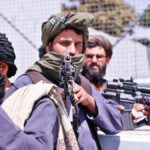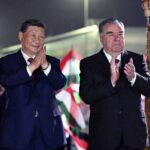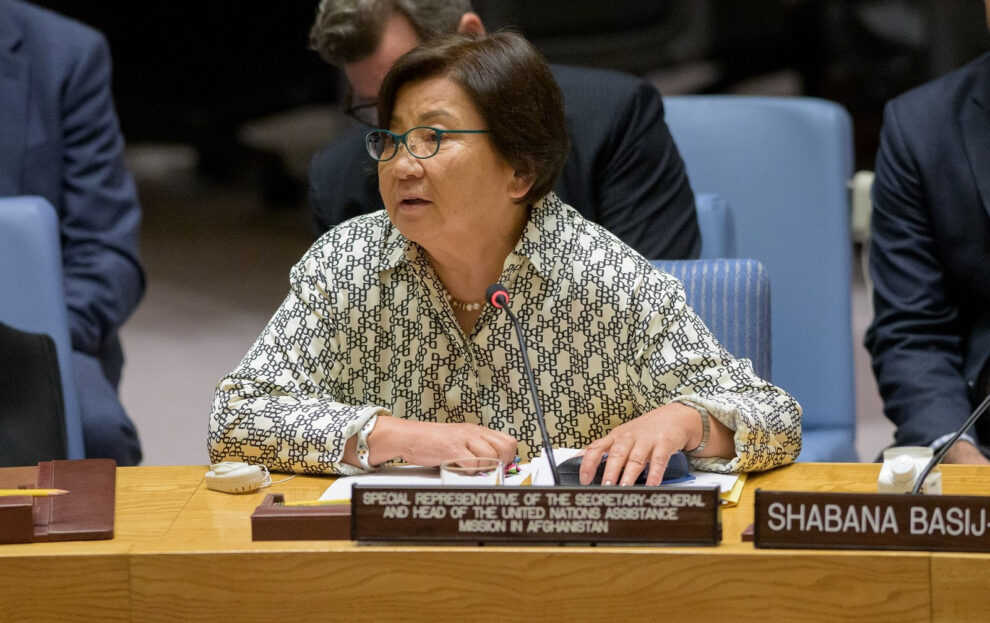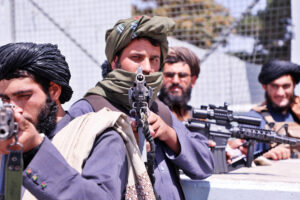KABUL (Pajhwok): UN Secretary General’s Special Representative for Afghanistan Roza Otunbayeva has said that Afghanistan’s economy remained stable, climate change fostered displacement while counter-terrorism situation presented mixed pictured.
Briefing the UN Security Council on situation in Afghanistan she said UN continued to face a complicated situation in Afghanistan.
“The April 5 restrictions against Afghan women working for the United Nations place a question mark over our activities across the country. We have been given no explanations by the de facto authorities for this ban and no assurances that it will be lifted,” she said.
Otunbayeva, who is also head of the UNAMA, asked the ‘Islamic Emirate of Afghanistan’ (IEA) to rescind bans on women to enable the United Nations to continue its full support to the people of Afghanistan.
She said The Afghan economy remained stable, albeit at a low equilibrium. The World Bank reported that inflation is declining and the exchange rate remains steady, this was due to the welcome reduction of high-level corruption.
The IEA authorities continue to report the collection of sufficient revenues to finance government operations, including paying civil service salaries. These include, according to the de facto authorities, some 500,000 who were working under the Republic.
On counter-terrorism the picture was mixed, the UNAMA head said, adding the IEA authorities made concerted efforts to counter ISIL-KP. Despite this, attacks targeting both the IEA authorities and the civilian population have taken place.
Most recently in Badakhshan on 6 and 8 June, two attacks targeting the de facto authorities killed and wounded at least 63 people, including 14 killed, 49 wounded, the majority of whom were civilians. Both attacks were claimed by IS-K.
Referring to Afghanistan’s vulnerability to climate change she said years of drought have compounded the effects of conflict and poverty.
Climate change was fostering population displacements inside Afghanistan that could be destabilizing.
In order to address Afghanistan’s lack of water and consequent food insecurity, the IEA authorities have begun digging a canal that will divert waters from the northern Amu Darya river, raising the concerns of neighbouring countries.
Overall the need to mitigate the effects of climate change requires a more specific dialogue between the de facto authorities and the international community.
Source : PAJHWOK
















